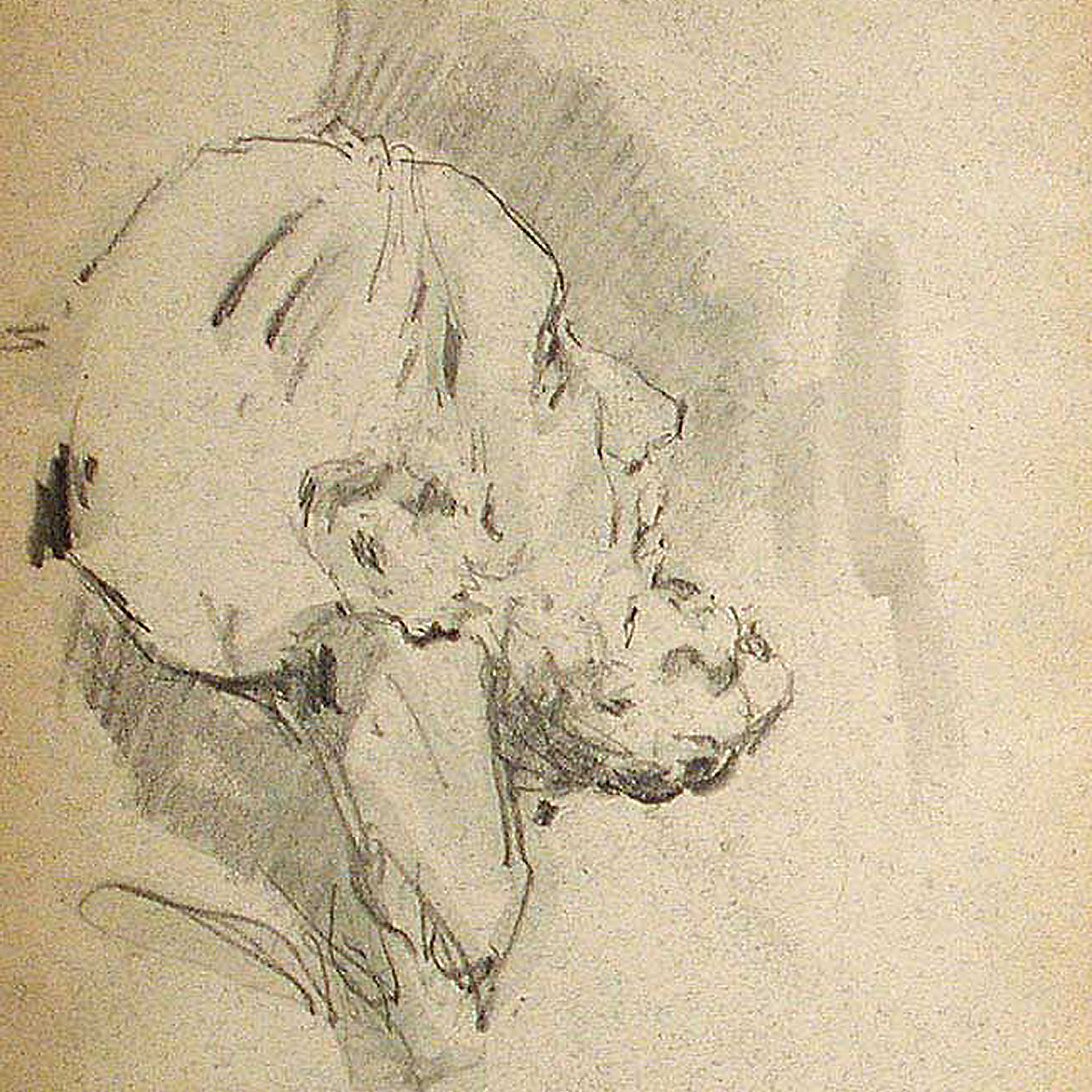The U.S. presidential election is a year away. If that doesn’t give you the shakes, this might: Consider for a moment how it may seem like half of your relatives appear to have become insane in the last decade. Doesn’t it seem like everyone has at least one “crazy uncle” or “wackadoodle niece”? And yet, this should also give us pause: What if we are actually that person?
How could each of us seek to better understand the world so that we can fulfill our moral responsibilities to neighbors, strangers, and the needy through a more abundant, engaged civic life? Free news outlets want your brains.
This piece addresses a small but necessary part of that puzzle: The news we trust matters.
Here are nine strategies for how, if at all, to trust the news:
1. Pay for the news, for not all news is alike.
2. Subscribe first to the local newspaper (or a suitable local nonprofit news outlet), then read internationally.
3. Subscribe to two or more print news sources that check each other and triangulate your biases.
4. Read news that corrects itself.
5. Read, don’t watch the news.
6. Don’t skip but do read the news in small doses.
7. Extend trust to professional news outlets independent of their politics.
8. Turn off triggering social media accounts and seek sources of sane correction instead.
9. Don’t be a fool or a cynic.
Pay for news
You’ve heard the phrase about social media platforms: “If you’re not paying for the product, you are the product.” Well, the same could apply to other forms of information, including news: If we’re not buying it, our news is selling us, not the news.
Professional news outlets that trade in expensive, fact-checked reporting want our money or our taxes. If that sounds bad, just wait: The free news outlets want your brains.
Free headlines are selling our attention to the highest bidder (whether advertiser or philanthropist). Zombie news sources include a wide range of free-to-read online sites with little apparent commitment to longstanding journalistic principles of fairness and facticity. Examples include sites like Newsmax, Breitbart, and Zerohedge aimed at Republicans, as well as the likes of Raw Story, Daily Kos, and Tony Michaels catering to Democrats, although, as many stress elsewhere, there is no political spectrum symmetry. Though their size and longevity protect them from some excesses, big broadcasters (ABC, CBS, NBC) and cable news both rely on the same basic business model.
So, avoid the zombie news sources that give us free stories and then eat our brains (so to speak) by profiting off of our cognitive patterns.
A healthy media diet starts with Reuters and the Associated Press. These are reliable, fact-checked sources that are supported by subscribing newspapers and broadcasters that use their content, so they are not pressured to traffic in attention-seeking.
Expand your scope
U.S. national news takes up a disproportionate amount of our news attention. So subscribe to your local newspaper, and read internationally.
Keep in mind that in many U.S. communities today, there are so-called “news deserts,” where sources for regular, professional news coverage have vanished. So you may find that some of the most energetic reporting on your community (or region) is being done by nonprofit digital startups. You can find a list of these nonprofits via FindYourNews.org.
At the same time, read an international news source or two. Most of these fine international sources have a free subscription option: BBC, Al-Jazeera, Sueddeutsche Zeitung (Central Europe), Africa News, Kyiv Independent, Johnson’s Russia List, and the Sinocism Substack newsletter, among many others.
Triangulate across your biases
Pay for two or more sources from opposing perspectives. The goal is not to zero out the headlines to political centrism. The goal is to understand reality in full light of its many asymmetries. Read news. Not too much. Pay for it.
Do more than just reach across the political aisle. Subscribe to more than one professional source for regular reminders that reality has more than two sides.
Read news that corrects itself
What does one do with errors? When our news sources publish error corrections and coverage reflections, they are signaling their seriousness, not sloppiness or carelessness.
Here’s a recent NPR story, for example, where NPR covers its own coverage, acknowledging it, too, had boosted a story that turned out poorly, even tragically. By contrast, Newsmax apologized to Eric Coomer for falsely accusing him of messing with 2020 election results only after legal pressure forced it to do so — and then Newsmax dropped the retraction from its website.
The best bets are NPR, PBS, and the BBC. These fact-based reporting outlets include addendums, corrections, and discussions of previous mistakes. News sources that cover or deny their errors, their liability, or shift the blame are objectively worse because their pretense to credibility is their greater deceit.
Read, don’t watch the news
On average, reading quality print news sources will leave us better informed than watching its equivalent on a screen.
Reading actively transforms visual symbols into interiorized voices. This process interrupts our reaction cycle and invites slow, careful processing that precedes interpretation. All news (including television news scripts) starts as a piece of writing. Cut out the middlemen and read higher-quality scripts yourself.
The average 10 words of fact-based print news are worth more than the average 10 minutes of free YouTube news commentary. Arguably far more. The first has to keep smart readers subscribed month after month for new insights. The second only has to keep us angry or entertained enough to sit through the next commercial break.
Read the news in small doses
If we find ourselves feeling stressed while on social media or thinking too much about the news, take a planned hiatus for a few weeks. When we come back, we can use a time-blocker app (like one of these) that lets us receive our news only once a day, say, for half an hour in the morning or evening.
Or, consider the “Slow News” movement. It encourages people to detox from news addiction — or limit ourselves to getting news just once a week.
News, after all, is a necessary ingredient in an informed citizen’s diet, but only a part. Remember this maxim? “Eat food. Not too much. Mostly plants.” That was how Michael Pollan famously cut through the complexity of what humans should eat to offer a simple prescription for maximal health. We think a similar injunction can work for news consumption: “Read news. Not too much. Mostly from fact-based professional sources that you pay for.”
Understand News Bias
News sources naturally have biases of many kinds. These biases influence how facts are presented and interpreted. But whether or not you can trust the facts themselves depends much more on how professional the news outlet is than its bias.
For example, Tim Ballard, a prospective candidate for the Utah Senate, continues to deny that The Church of Jesus Christ of Latter-day Saints made a statement denouncing him for “activity regarded as morally unacceptable,” despite the fact that the denunciation has been credibly and repeatedly confirmed by multiple sources.
His denial relies on attacking the messenger, Vice. Because Vice has a left-wing bias and a history of attacks on the Church, some falsely suggest the statement likely has been fabricated. This is wrong. Multiple sources have verified the denunciation.
News organizations face liability and defamation suits for fabricating or falsely attributing statements. Professionals offer checkable slants and necessary facts at the same time. Not all criticisms may be dismissed as politically motivated, and indeed, so long as they are grounded in factual reality, not all politically motivated criticisms should be dismissed. (Pro tip: consider a newsletter like Tangle that summarizes the best arguments from left, right, and center on a big topic each day.) Especially consider those criticisms that correct our own politics: this is the way to sustainable civics. Don’t blame or dismiss serious news for having bias; expect it, observe it, and use that bias to improve and correct our own.
Turn off social media
Social media springs traps in both extremes: Perhaps the only thing worse than a forum overrun by trolls is a univocal forum without any dissent at all. Social media companies profit off the ruinous fact that if they nudge us all into echo chambers, we have no grounds for realizing when our self-evident truths are neither self-evident nor true.
Unless one happens to be an expert or follow other experts on highly specific topics, log off of social media, get print news through subscriptions, and, at the least, heavily curate the social media feed to follow experts promoted for correcting themselves. Use restraint before we farm out our minds to algorithms that profit from leading us to bar-fight forums where our rage generates clicks or to unchecked echo chambers where the algorithm profits off our endless scroll.
Be neither the cynic nor the fool
The cynic refuses to trust no matter what, and the fool trusts no matter what. Can we start by admitting our own biases and then working to check them? By working to correct these biases with self-correcting stories about reality, we might just build out a mental worldview to become better citizens.
The cynic believes that all news sources are bad. So anytime a cynic hears a claim that might correct their worldview that came through a news medium, they conclude that the information inconvenient to them is, therefore, wrong or suspect.
Cynicism shuts our eyes to the simple fact that there must be better and worse ways to make sense of the world and that some news brands are empirically preferable to others. The quality of news cannot be reduced to my ideological convenience if I am to know its quality.
Trust is fragile, self-reproducing, and essential to any functioning modern society. Undifferentiated news cynicism (which throws away the trustworthy stuff because something that calls itself “news” is a free brain-sucking zombie brand) frays our broader social fabric of trust, which is slow to mend itself once lost. Unsubscribe today from all the free toxic flotsam.
Get prepared
It’s early November 2023. Prepare today for what’s coming in the next twelve months.
We can anticipate waves of wild claims about monstrous evils and utopian promises to fix society “nowadays.” These arguments will intensify the ongoing tornado of unnecessary negative partisanship. It’s coming. Buckle up, but don’t panic, and don’t react. Unsubscribe today from all the free toxic flotsam. Subscribe to a few politically complex fact-based news sources (especially the local paper).
We must take responsibility for our thoughts by seeking the sources and the methods worthy of trust by which we can self-correct and inform ourselves about “the world outside of our heads,” as Walter Lippmann quipped in his masterwork Public Opinion just over a century ago.
There’s nothing easy about remaining curious enough to keep learning, confident enough to act responsibly and humbly in the face of uncertainty, and continuously watering the ground from which springs our commitment to try to use what we know and do to serve others.
What higher standard could exist for the maturing good citizen than self-correction?
To read the full version of the article: How To Make Sense of the World: The Case For Reading the News

















